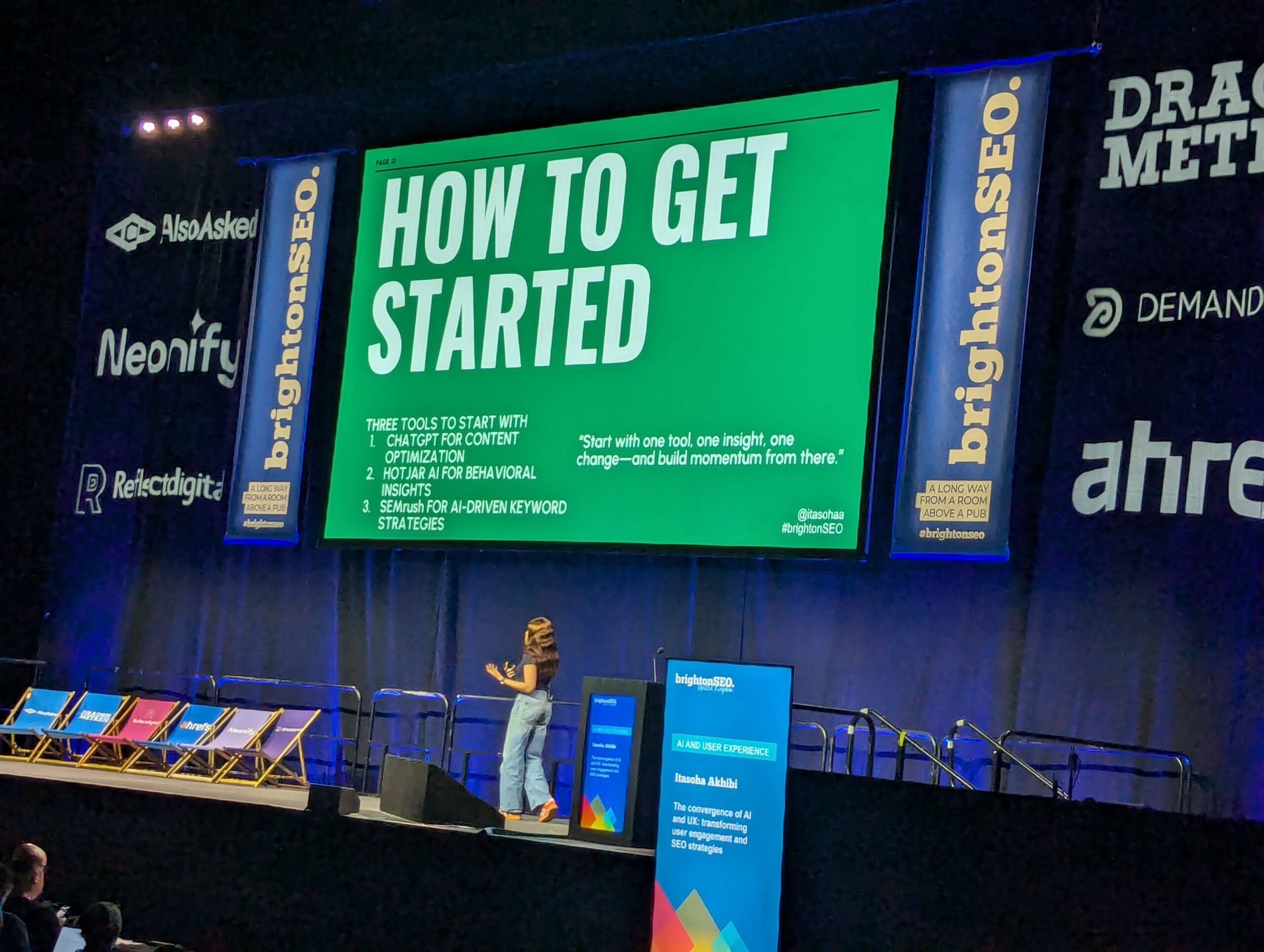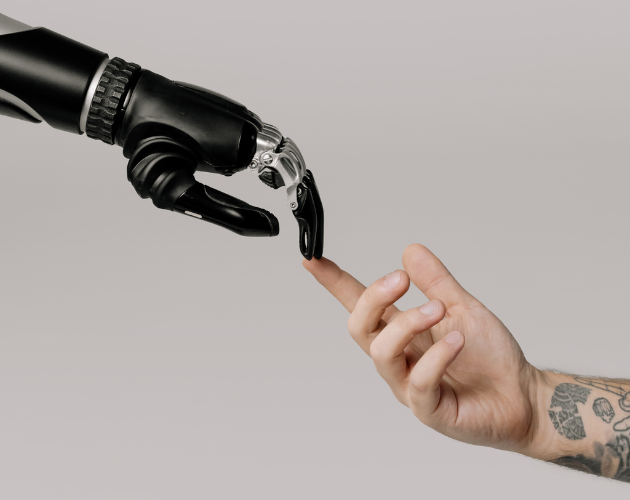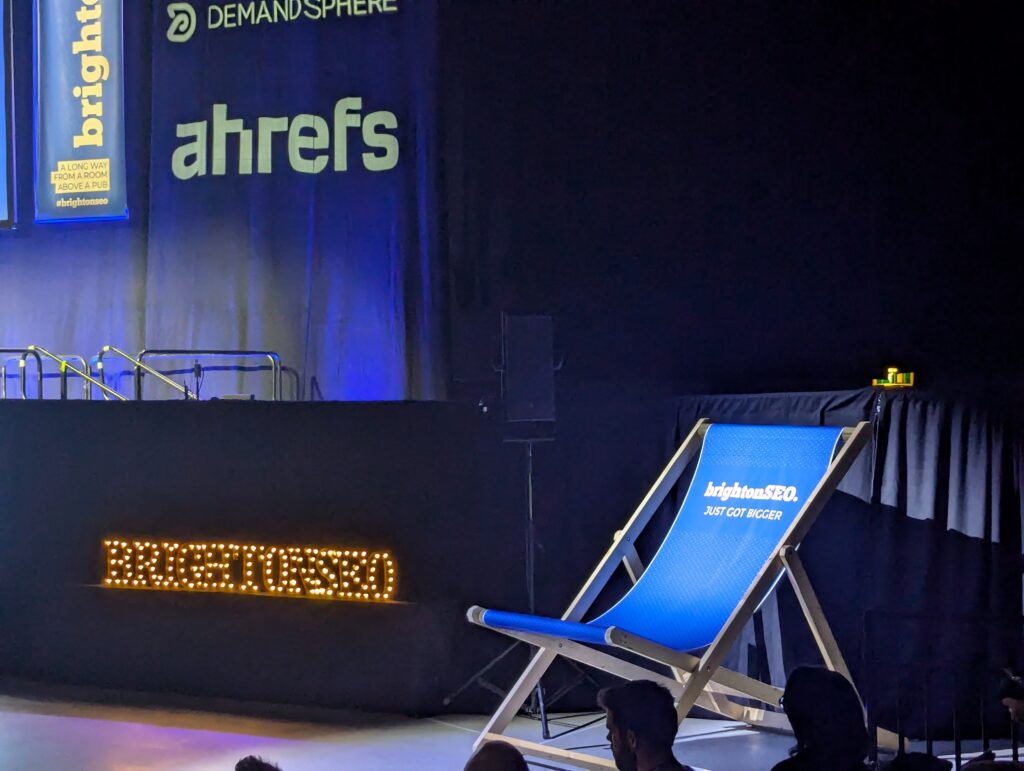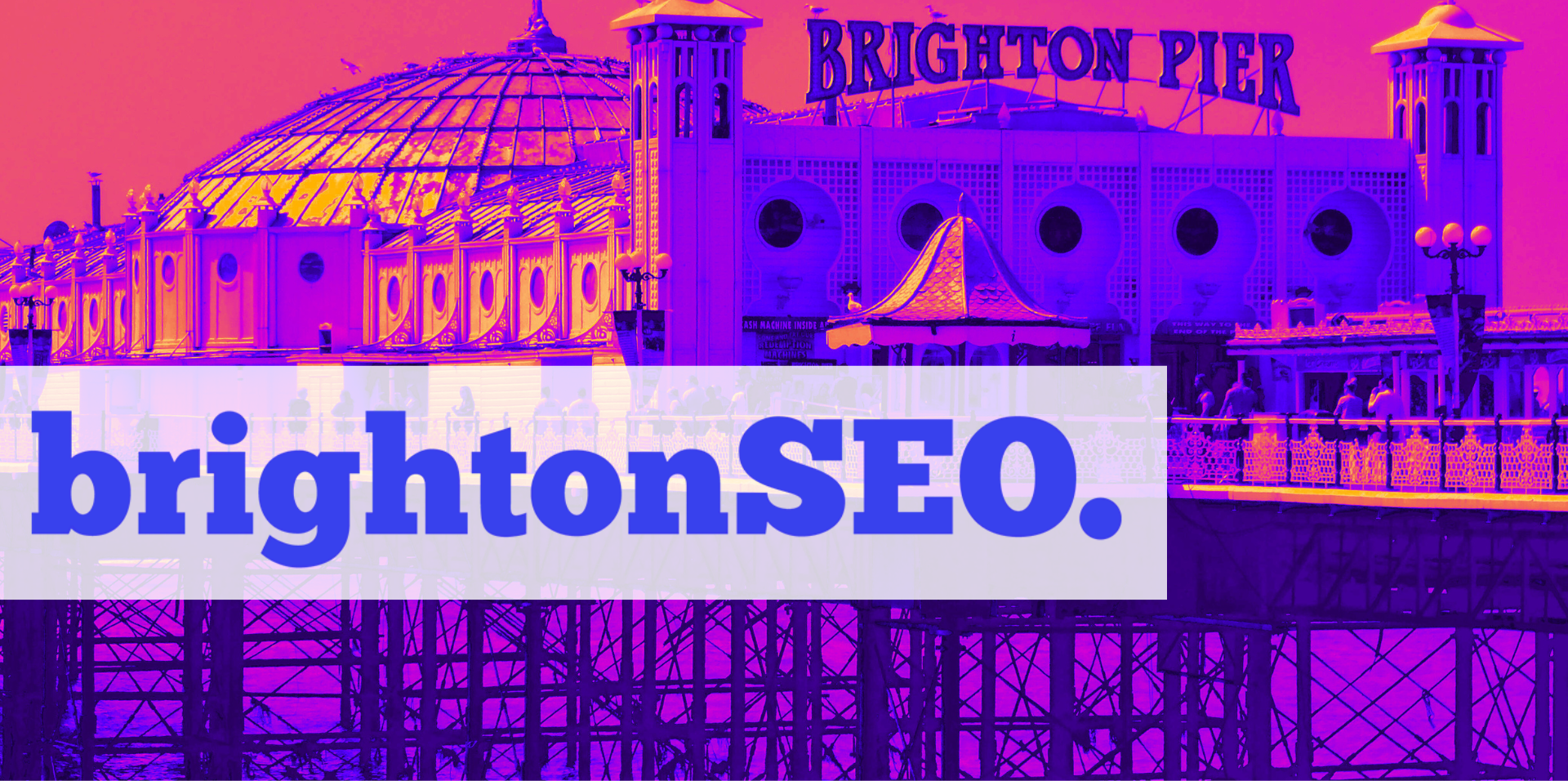BrightonSEO April 2025 was brimming with insights, experiments, and forward-thinking strategies from some of the sharpest minds in digital marketing. From the rise of AI-powered search engines to the growing importance of user experience (UX) and Core Web Vitals in SEO, here’s what we learned—and what businesses should be considering next.
AI Is Reshaping Search – But SEO Isn’t Dead Yet
Artificial intelligence (AI) dominated discussions at BrightonSEO, with numerous talks exploring how tools like ChatGPT and Perplexity are transforming search behaviour.
- AI still relies on traditional search: Research across 17 industries found that ChatGPT uses Google’s index in over 50% of cases. However, there’s only a 12% overlap between keywords ranked by Google and those prioritised by ChatGPT.
- AI is building its own indexes: Platforms like Perplexity are developing proprietary systems, while tools such as ChatGPT favour sources like Wikipedia and Reddit.
- Listicles perform well in AI search: Formats like “Top 10” posts accounted for 32% of citations in analysed AI responses, suggesting they’re effective for visibility in AI-driven results.
- Measuring visibility is tricky: Traditional SEO metrics don’t apply directly to AI search. Prompt research and understanding user intent are now critical for optimising content for AI engines.
- JavaScript-heavy sites face challenges: Many AI crawlers struggle to render JavaScript, which can impact discoverability for dynamic websites.
- AI’s growing influence: Gartner predicts that by 2026, 25% of organic searches will begin on AI chatbots – a figure expected to rise to 50% by 2028.
Key takeaway: Businesses must maintain strong traditional SEO practices while preparing for a future dominated by AI-driven search engines. This includes optimising content for both human readers and machine learning systems across multiple platforms.
AI + UX = Personalised, Predictive and Powerful Experiences
The intersection of AI and UX was another major theme at BrightonSEO, with practical advice on using AI tools to improve engagement and SEO outcomes.
- Personalisation matters: 62% of users expect tailored experiences, and AI can deliver these at scale — think Netflix-style recommendations or Amazon’s predictive product suggestions.
- Better UX reduces bounce rates: A case study from Nigeria showed bounce rates dropping from 50% to 15% using tools like Hotjar and AWS to analyse user behaviour.
- Start small and scale up: Tools such as ChatGPT, Ahrefs, and Hotjar offer accessible ways to integrate AI into UX and content planning.

Key takeaway: AI isn’t just transforming search engines — it’s revolutionising user journeys by reducing friction and creating personalised experiences that keep customers engaged.
Core Web Vitals: Real User Data Over Lighthouse Scores
BrightonSEO highlighted the importance of real-world site performance over synthetic scores like those from Lighthouse audits.
- Core Web Vitals matter more than Lighthouse scores: Less than half of pages scoring 100/100 in Lighthouse actually pass Google’s Core Web Vitals (CWV), which are key ranking factors.
- Real User Monitoring (RUM) is essential: Tools like Request Metrics and RUM Vision provide accurate, real-time data on user experience.
- Better CWV equals better performance: Analysing CWV metrics (like LCP, INP, CLS) against click-through rates (CTR) showed improved CWV correlates with higher clicks – helping businesses prioritise engineering efforts effectively.
Key takeaway: Don’t rely solely on Lighthouse scores; focus on improving real user experience using CWV and RUM tools to achieve better rankings and performance.
E-E-A-T and Multi-Channel Content Strategy Build Trust
Search engines are evolving how they evaluate trust and authority—and your About page could be your secret weapon.
- Structured data boosts trust: Redesigning an About page with clear schema markup led to a 3% increase in revenue for one brand.
- E-E-A-T goes beyond your website: Google assesses experience, expertise, authority, and trust based on factors like brand mentions, social proof, and expert-led content across various channels.
- Discovery matters as much as demand: Social media posts and forums are increasingly showing up in search results – making brand discovery just as important as targeting direct queries.
- Multi-channel strategies win big: A brand combining blog posts, videos, and social media saw a 266% increase in visibility over five years.
Key takeaway: Build trust with users – and Google – by combining strong on-site content with structured data and consistent storytelling across multiple channels.
Social Media Search Preferences Are Shifting SEO Strategies
Search behaviour is changing rapidly, particularly among younger generations who favour social platforms over traditional search engines.
- Generational differences in search habits: Gen Z and millennials increasingly turn to TikTok, Instagram, and Reddit for product recommendations – valuing peer reviews over traditional SERPs.
- Social media’s growing role in discovery: Platforms like Reddit are popular across all demographics, but especially among younger users seeking authentic content from communities.
- Traditional search remains important for older audiences: Older generations still rely heavily on Google for information – making traditional SEO essential when targeting these groups.
Key takeaway: Businesses need tailored strategies – traditional SEO for older audiences alongside social media optimisation for younger ones – to stay visible across all platforms where customers spend time searching or discovering brands.
The Future of SEO Is Automated, API-Powered, and Multichannel
BrightonSEO speakers predicted a reinvention of SEO workflows driven by automation and multichannel strategies.
- Automation saves time: Tasks like keyword research or backlink analysis that once took days can now be completed in minutes using AI tools or APIs – freeing marketers to focus on strategy instead of manual processes.
- Social media is part of the SEO journey: With 60% of Gen Z and millennials using platforms like TikTok or Reddit for discovery, businesses must think beyond traditional search engines when planning content strategies.
- Personalised content wins every time: 71% of users prefer tailored experiences, highlighting the importance of smarter segmentation and dynamic content delivery systems powered by AI tools.

Key takeaway: SEO is evolving into a faster, smarter, and broader discipline — driven by automation, integrated APIs, and multichannel strategies. To stay competitive, we must embrace AI to streamline workflows, treat social platforms as vital discovery channels, and prioritise personalised, data-driven content experiences.
Final Thoughts
BrightonSEO April 2025 made one thing clear: the digital marketing landscape is changing fast. AI-powered tools, UX improvements, multichannel engagement strategies, and automation are no longer optional; they’re essential components of a successful digital strategy.
At britweb, we’re already helping clients navigate this transition by blending technical SEO, content strategy, and AI-powered tools. Ready to future-proof your business? Get in touch today!

